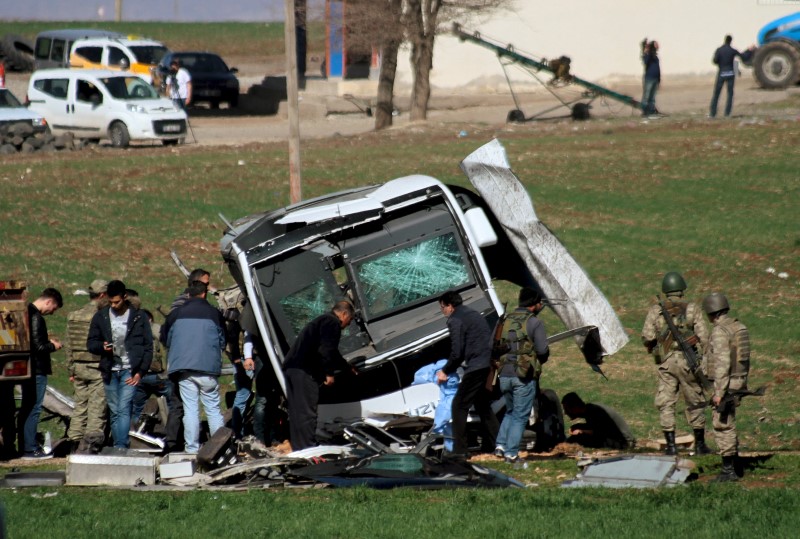By Orhan Coskun
ANKARA (Reuters) - A DNA report from a suicide bombing that killed 29 people in the Turkish capital Ankara last week suggests the main perpetrator was Turkish-born, not Syrian as initially stated by the government, a senior Turkish security official said on Tuesday.
A car laden with explosives detonated next to military buses as they waited at traffic lights near Turkey's armed forces' headquarters, parliament and government buildings in the administrative heart of Ankara last Wednesday.
The next day, Prime Minister Ahmet Davutoglu blamed a Syrian Kurdish YPG militia fighter working with Kurdish militants inside Turkey for the attack, naming him as Salih Necar, born in 1992, and from the Hasakah region of northern Syria.
But the DNA report suggested the attack was carried out by Abdulbaki Somer, born in the eastern Turkish city of Van, said the security official and the state-run Anadolu news agency, which cited prosecution sources.
That matches the name given by the Kurdistan Freedom Hawks (TAK), a Kurdish militant group, when it claimed responsibility for the attack in a statement on its website on Friday.
"The DNA report has been published. We saw that it was not Necar," the security official told Reuters, speaking on condition of anonymity because the results of the investigation have not yet been made public.
"The bomber's DNA matches that of Abdulbaki's father. It looks like the bomber was Abdulbaki Somer, that's what the report is saying," the official said.
The political wing of the YPG, which has benefited from U.S. support in northern Syria as it fights Islamic State militants, has said the Turkish government has tried to pin the blame for the Ankara attack on it as a pretext for shelling its positions in Syria.
Ankara views the YPG as a hostile insurgent force with deep links to the Kurdistan Workers Party (PKK), a militant group which has fought a three-decade insurgency for Kurdish autonomy in Turkey's southeast.
The Turkish armed forces shelled YPG positions in northern Syria in the days after the Ankara bombing and launched air strikes on PKK camps in northern Iraq, as the government vowed that those responsible would pay the price.
Davutoglu said earlier on Tuesday that TAK's claim of responsibility for the Ankara bombing was a diversionary tactic, and that the various militant groups were all part of the same "terrorist structure".
"As a result of rapid work by our security units, it has been clearly understood that this attack was planned and carried out through a cooperation between the YPG and the PKK," Davutoglu said, speaking in parliament.
"The claim of responsibility by TAK, a PKK offshoot, aims to divert attention from the YPG. Whether it's KCK, YPG, PKK, TAK or PJAK, they are all part of the same terrorist structure," he said, referring to a series of Kurdish militant groups.

"Their owners and puppeteers are known to us."